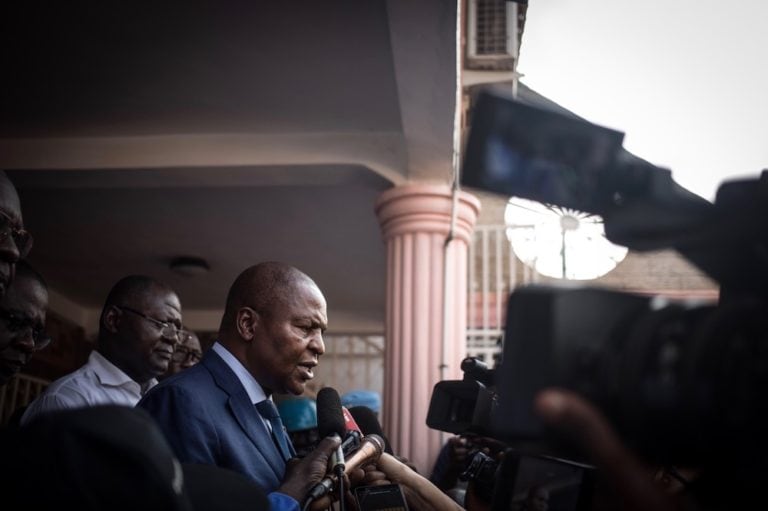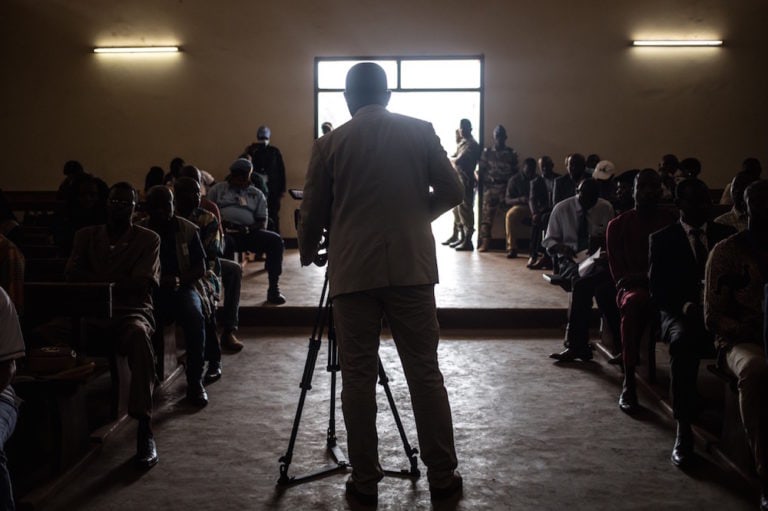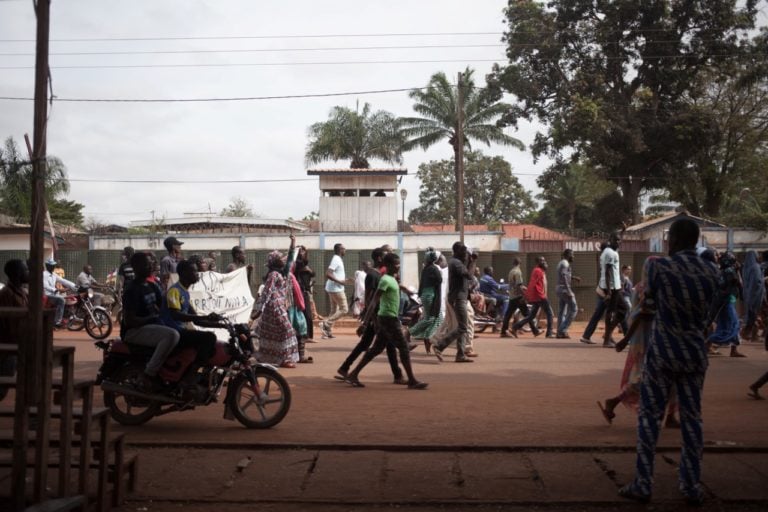(RSF/IFEX) – RSF is concerned about the serious decline of the press freedom situation in the Central African Republic (CAR). Since the attempted coup d’état in the country on 25 October 2002, two international radio stations have been censored, a French journalist was expelled without explanation from the airport in the capital, Bangui, and several […]
(RSF/IFEX) – RSF is concerned about the serious decline of the press freedom situation in the Central African Republic (CAR). Since the attempted coup d’état in the country on 25 October 2002, two international radio stations have been censored, a French journalist was expelled without explanation from the airport in the capital, Bangui, and several local journalists have been threatened.
RSF has asked the CAR authorities, especially President Ange-Félix Patassé, to take measures to guarantee press freedom. The organisation has asked that the censored radio stations be allowed to broadcast again, that local journalists who seek it be provided with better protection, and that foreign correspondents who cover news in the country be granted greater freedom.
According to information collected by RSF, the radio stations Africa n°1 and Radio-France Internationale (RFI) can no longer be heard in Bangui. Africa n°1, a pan-African station, cannot be heard since the attempted coup d’état on 25 October. RFI programmes cannot be heard since 16 November. The head of state complained about RFI’s news coverage on 9 November. “If you continue, I will remove RFI from the FM dial in Bangui,” he warned. On 19 November, Communications Minister Gabriel-Jean Edouard Koyambounou denied switching off the stations’ transmitters, attributing the situation instead to a likely technical breakdown caused by “heavy rains or thunder.”
On 17 November, border police expelled Thierry Oberlé, a special correspondent for the French daily newspaper “Le Figaro”, from Bangui’s Mpoko Airport, without providing any explanation. According to the journalist, a mercenary from former French police officer Paul Barril’s group appeared to be overseeing operations at the airport.
Several local journalists have complained of threats from CAR security forces. Among them, Joseph Benamse, a correspondent for the American news agency Associated Press and BBC radio, was threatened on 14 November by a presidential chauffeur who also heads an armed militia. The journalist explained, “Supported by seven well-armed soldiers, he followed my car and forced me to stop in front of the BICA [a bank], where he accused me of bias in my coverage of the recent events that have shaken the country.”
Maka Gbossokotto, publication director of “Le Citoyen”, also claims to have received physical threats. His telephone line has been cut repeatedly and the journalist believes he is under surveillance.
Moreover, on 15 November, a group of CAR journalists called for the release of Prosper N’Douba, a presidential spokesperson and publication director of the newspaper “Centrafrique Presse”. He has been held by supporters of General François Bozizé since 25 October. General Bozizé has claimed responsibility for the recent coup d’état attempt.


